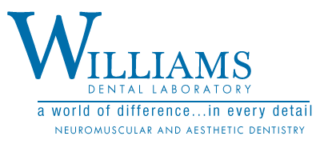Does a dentist need to understand occlusion to be a good dentist? Can a dentist survive on the education that he or she gained in dental school, and that is enough? All dentists have patients in their practice that have occlusal-related issues, or “occlusal disease.” How can you be a “complete” dentist without a comprehensive understanding of occlusion?
Occlusion is the footing for everything a dentist does that involves teeth, gums, and airway and let us not forget the tongue. Having an in-depth knowledge of occlusion is the basis for understanding why gums and bone dissolve away from teeth. Occlusion is why teeth become loose, worn down, broken, shift or fracture, and become unstable. Occlusion is also why restorations fracture, implants fail, and teeth get infected when there is no decay, old fillings, or disease present. The imbalance in the bite is the primary consideration when dealing with sore teeth, aching muscles, and facial, back, and neck pain, TMJ discord, and obstructive airway issues.
Occlusal or bite disease, which is it?
Damage to the chewing surfaces of teeth is referred to as occlusal or bite disease. This disease is the most common cause for a patient to be uncomfortable long after treatment or even dissatisfied with the outcomes provided by their recent treatment. It has become the most neglected diagnosis by dentists, which is sad because early diagnosis and treatment of bite disease helps prevent pain, lifestyle changes, costly dental treatments, and overall patient dissatisfaction towards dentistry. Without a solid understanding of the principles of occlusion, it is impossible to achieve long-lasting restorative results for patients, as well as predictability in treatment provided.
An understanding of the anterior and posterior relationship is an integral part of occlusion. It is as important as a steering wheel is to a car. The functional harmony is the guiding principle for creating an attractive, functional, and balanced smile. Anterior guidance is one of the keys to predictable comfort and long-term maintenance of the teeth, but, in fact, you cannot forget that there are many principles to consider when looking at the balance of the whole masticatory system.
Learning about occlusion?
Of all the education included in the Las Vegas Institute for Advanced Dental Aesthetics (LVI), achieving a working knowledge of occlusion stimulates the greatest excitement. The benefits of having a proficient knowledge of occlusion allow you to provide predictable outcomes of treatment in everyday practice. It is the most important piece of skill and knowledge for any dentist who wants to eliminate the wasted time of trial and error of bite adjustments or the cost and time resulted in remakes, and even patient complaints, from their new restorations not being comfortable. This is a skill that is badly needed for all dentists beyond the standard two to three hours of occlusal education provided in dental school. It comes down to, if you do not know what you are looking at, then how will you ever treat it correctly?
After 30 years of training on various philosophies of occlusion, we as a laboratory feel that we have found one type, and one place to learn it, and that is LVI. The occlusion courses at LVI provide you with the knowledge you can implement at work first thing on Monday morning. The courses at LVI are immediately applicable. There is no struggle and no time lapse between taking the courses and helping patients. After all, helping patients is all that matters!
This is why we choose LVI and strongly recommend their occlusion courses.
Not a week goes by that we do not get a message from a client that was trained at LVI. Below is a quote we received today from an LVI trained client.
“Bob, the patient is a chronic migraine sufferer that was at her wits end. She has been treated by several doctors including a neurologist with no relief. She sought me out because she saw I treated TMJ and migraines and was trained at LVI. She was just hoping to get some kind of relief. We seated the orthotic Monday. She has been pain-free ever since. The first time she has been pain-free in years. I was hoping you could let all the people that work in the lab know about our success. They don’t get to see the patient’s reactions, but they are really changing people’s lives.”
How powerful is that message? This should make sense to everyone that reads it. LVI is where you need to take occlusion courses if you strongly feel the need to help your patients.
Williams Dental Lab is here to serve you and the needs of your practice. Please call Williams Dental Laboratory located in Gilroy, CA at 800.713.5390.

Turned out to be a quite interesting article. thanks for posting.